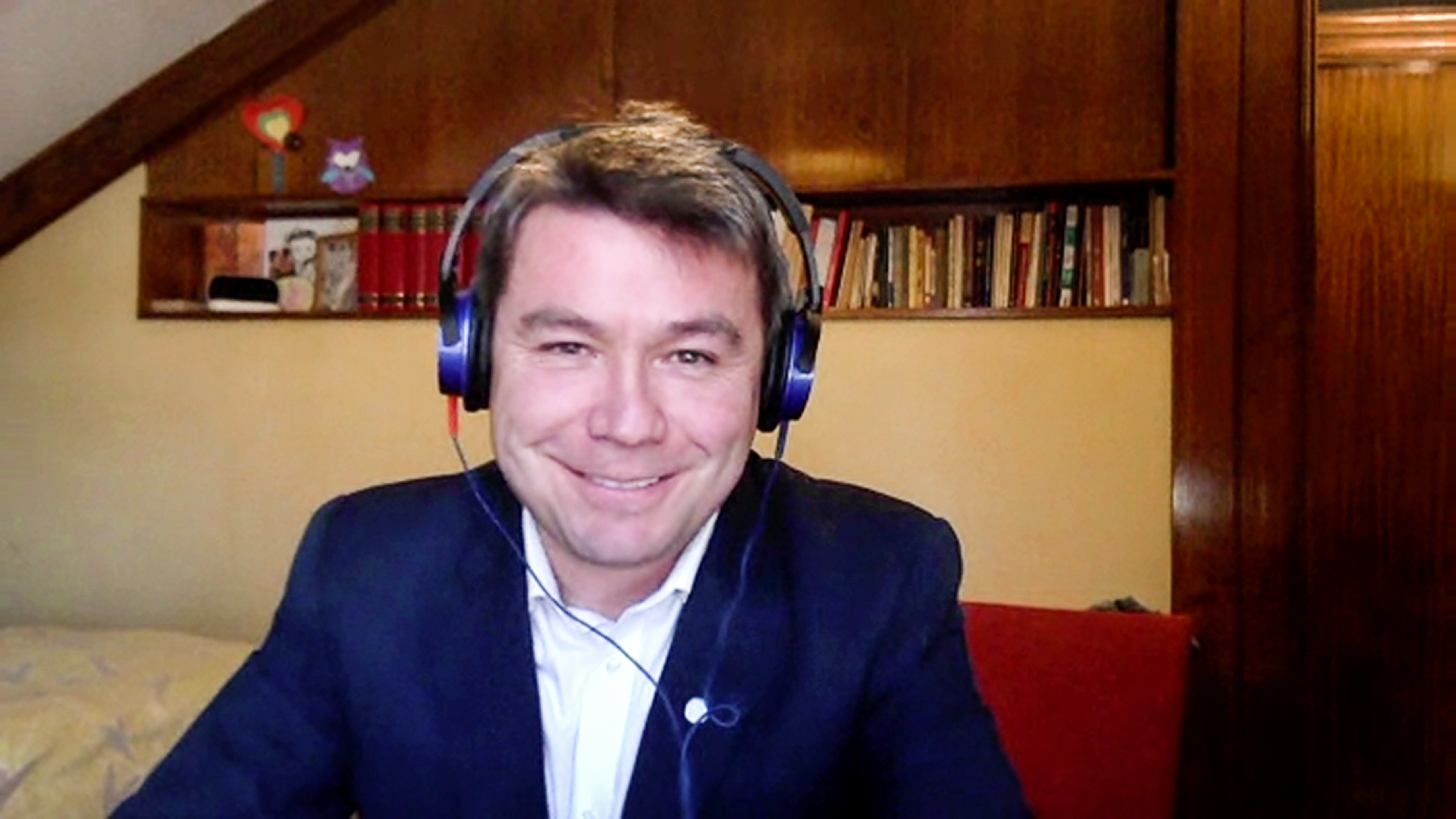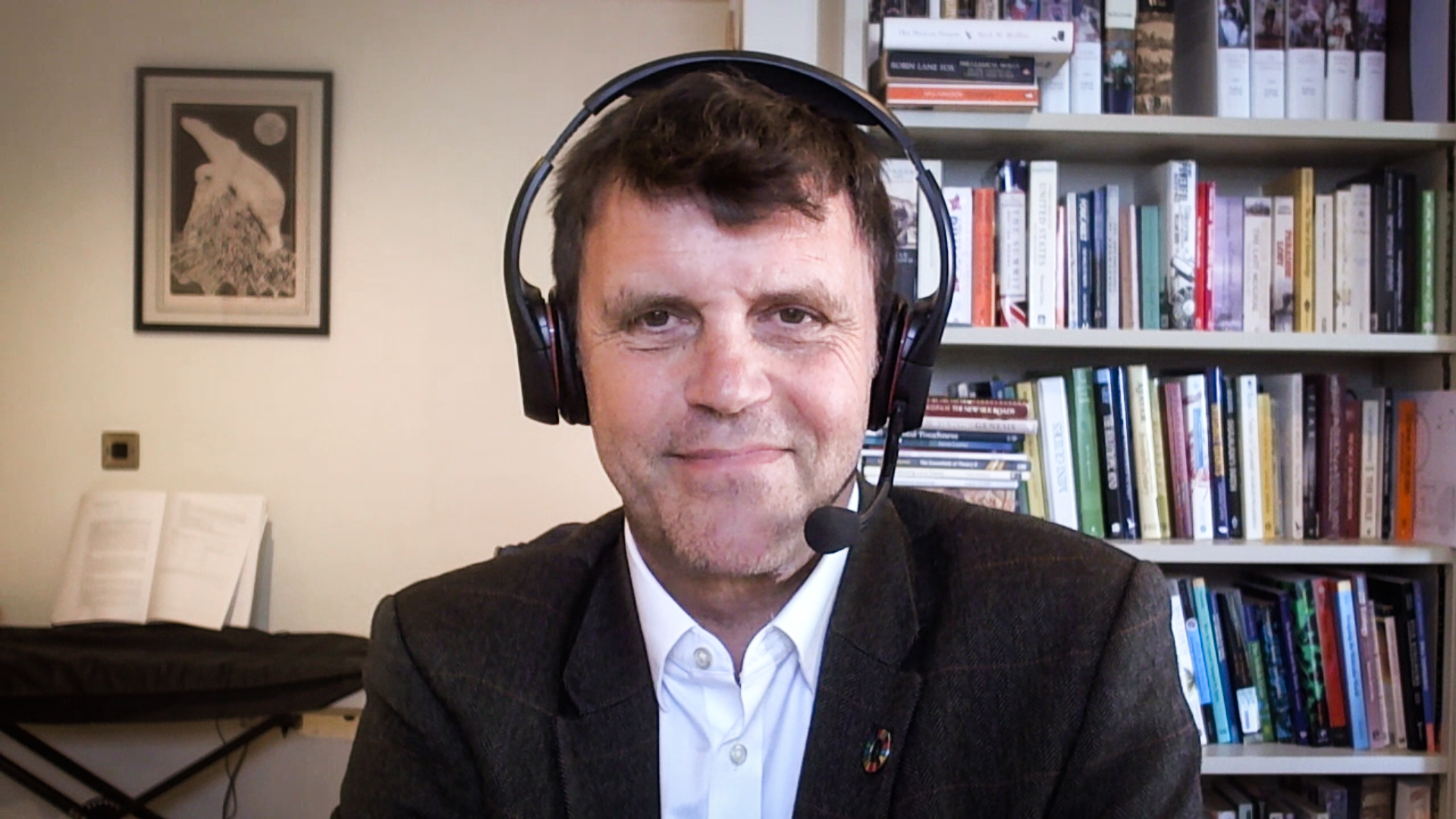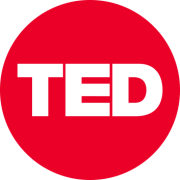https://blog.ted.com/conversations-on-climate-action-and-contact-tracing-week-2-at-ted2020/
- |

“We need to change our relationship to the environment,” says Chile’s former environment minister Marcelo Mena. He speaks with TED current affairs curator Whitney Pennington Rodgers at TED2020: Uncharted on May 26, 2020. (Photo courtesy of TED)
Marcelo Mena, environmentalist and former environment minister of Chile
Big idea: People power is the antidote to climate catastrophe.
How? With a commitment to transition to zero emissions by 2050, Chile is at the forefront of resilient and inclusive climate action. Mena shares the economic benefits instilling green solutions can have on a country: things like job creation and reduced cost of mobility, all the result of sustainability-minded actions (including phasing coal-fired power plants and creating fleets of energy-efficient buses). Speaking to the air of social unrest across South America, Mena traces how climate change fuels citizen action, sharing how protests have led to green policies being enacted. There will always be those who do not see climate change as an imminent threat, he says, and economic goals need to align with climate goals for unified and effective action. “We need to change our relationship to the environment,” Mena says. “We need to protect and conserve our ecosystems so they provide the services that they do today.”

“We need to insist on the future being the one that we want, so that we unlock the creative juices of experts and engineers around the world,” says Nigel Topping, UK High Level Climate Action Champion, COP26. He speaks with TED Global curator Bruno Giussani at TED2020: Uncharted on May 26, 2020. (Photo courtesy of TED)
Nigel Topping, UK High Level Climate Action Champion, COP26
Big idea: The COVID-19 pandemic presents a unique opportunity to break from business as usual and institute foundational changes that will speed the world’s transition to a greener economy.
How? Although postponed, the importance of COP26 — the UN’s international climate change conference — has not diminished. Instead it’s become nothing less than a forum on whether a post-COVID world should return to old, unsustainable business models, or instead “clean the economy” before restarting it. In Topping’s view, economies that rely on old ways of doing business jeopardize the future of our planet and risk becoming non-competitive as old, dirty jobs are replaced by new, cleaner ones. By examining the benefits of green economics, Topping illuminates the positive transformations happening now and leverages them to inspire businesses, local governments and other economic players to make radical changes to business as usual. “From the bad news alone, no solutions come. You have to turn that into a motivation to act. You have to go from despair to hope, you have to choose to act on the belief that we can avoid the worst of climate change… when you start looking, there is evidence that we’re waking up.”

“Good health is something that gives us all so much return on our investment,” says Joia Mukherjee. Shes speaks with head of TED Chris Anderson at TED2020: Uncharted on May 27, 2020. (Photo courtesy of TED)
Joia Mukherjee, Chief Medical Officer, Partners in Health (PIH)
Big idea: We need to massively scale up contact tracing in order to slow the spread of COVID-19 and safely reopen communities and countries.
How? Contact tracing is the process of identifying people who come into contact with someone who has an infection, so that they can be quarantined, tested and supported until transmission stops. The earlier you start, the better, says Mukherjee — but, since flattening the curve and easing lockdown measures depend on understanding the spread of the disease, it’s never too late to begin. Mukherjee and her team at PIH are currently supporting the state of Massachusetts to scale up contact tracing for the most vulnerable communities. They’re employing 1,700 full-time contact tracers to investigate outbreaks in real-time and, in partnership with resource care coordinators, ensuring infected people receive critical resources like health care, food and unemployment benefits. With support from The Audacious Project, a collaborative funding initiative housed at TED, PIH plans to disseminate its contact tracing expertise across the US and support public health departments in slowing the spread of COVID-19. “Good health is something that gives us all so much return on our investment,” Mukherjee says. See what you can do for this idea »

Google’s Chief Health Officer Karen DeSalvo shares the latest on the tech giant’s critical work on contact tracing. She speaks with head of TED Chris Anderson at TED2020: Uncharted on May 27, 2020. (Photo courtesy of TED)
Karen DeSalvo, Chief Health Officer, Google
Big idea: We can harness the power of tech to combat the pandemic — and reshape the future of public health.
How? Google and Apple recently announced an unprecedented partnership on the COVID-19 Exposure Notifications API, a Bluetooth-powered technology that would tell people they may have been exposed to the virus. The technology is designed with privacy at its core, DeSalvo says: it doesn’t use GPS or location tracking and isn’t an app but rather an API that public health agencies can incorporate into their own apps, which users could opt in to — or not. Since smartphones are so ubiquitous, the API promises to augment contact tracing and help governments and health agencies reduce the spread of the coronavirus. Overall, the partnership between tech and public health is a natural one, DeSalvo says; communication and data are pillars of public health, and a tech giant like Google has the resources to distribute those at a global scale. By helping with the critical work of contact tracing, DeSalvo hopes to ease the burden on health workers and give scientists time to create a vaccine. “Having the right information at the right time can make all the difference,” DeSalvo says. “It can literally save lives.”
After the conversation, Karen DeSalvo was joined by Joia Mukherjee to further discuss how public health entities can partner with tech companies. Both DeSalvo and Mukherjee emphasize the importance of knitting together the various aspects of public health systems — from social services to housing — to create a healthier and more just society. They also both emphasize the importance of celebrating community health workers, who provide on-the-ground information and critical connection with people across the world.
